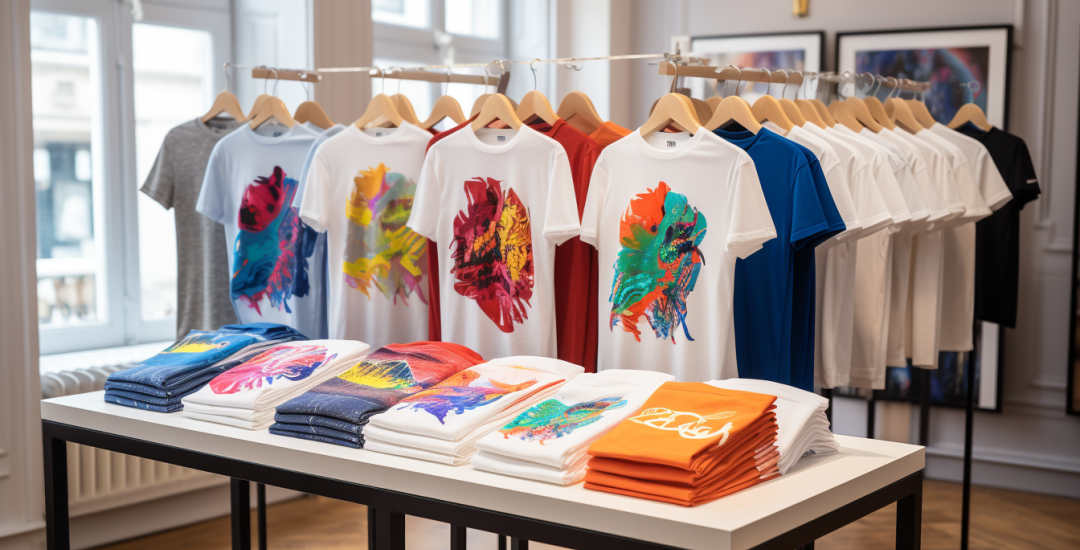Tshirt print options have become increasingly popular as personalized apparel gains momentum. Whether you’re looking to create custom shirts for a business, event, or personal use, understanding the various t-shirt print methods can help you make the best choice. In this article, we’ll explore different t-shirt print techniques, their benefits, and tips for achieving the best results.
Understanding Different T Shirt Print Methods
Screen Printing: A Classic Choice for Tshirt Print
Screen printing is one of the most widely used t shirt print methods. It involves creating a stencil (or screen) and applying ink through it onto the shirt. This method is ideal for bulk orders and offers vibrant colors and durability. Screen printing is cost-effective for larger runs but may not be as economical for smaller quantities.

Direct-to-Garment (DTG) Printing: High-Detail Tshirt Print
Direct-to-Garment (DTG) printing uses specialized inkjet technology to print designs directly onto the tshirt fabric. This method is excellent for intricate designs and photographic prints. DTG is perfect for small batches or one-off custom tshirt prints, as it does not require setup like screen printing.
Heat Transfer Printing: Versatile Tshirt Print Technique
Heat transfer printing involves using heat to apply a design onto a tshirt. There are two main types: vinyl transfers and sublimation transfers. Vinyl transfers use a heat press to apply a vinyl sheet with your design, while sublimation transfers use heat to infuse dye into the fabric. This method is versatile and can produce high-quality, durable prints.
Embroidery: Adding a Touch of Elegance to Tshirt Print
Embroidery adds a sophisticated touch to tshirt prints. By stitching your design directly into the fabric, embroidery creates a raised, textured effect that’s both durable and visually appealing. This method is ideal for logos and small, detailed designs but may not be suitable for complex, multi-colored graphics.
Choosing the Right T Shirt Print Method
Consider Your Design and Quantity
When selecting a tshirt print method, consider the complexity of your design and the number of shirts needed. For detailed, colorful designs and small quantities, DTG or heat transfer printing may be best. For larger orders with simpler designs, screen printing could be more cost-effective.
Evaluate Fabric and Shirt Color
The type of fabric and shirt color can affect the final print quality. Light-colored shirts are ideal for vibrant designs, while dark shirts may require a white underbase to make colors pop. Additionally, different fabrics can impact how well the print adheres and lasts over time.
Budget and Turnaround Time
Your budget and turnaround time also play a crucial role in choosing the right t shirt print method. Screen printing may offer lower costs per shirt for large orders but has a longer setup time. DTG and heat transfer methods might be more expensive per shirt but offer quicker turnaround for smaller batches.
Tips for Achieving the Best T Shirt Print Results
Work with a Professional Designer
To ensure your design translates well into the shirt, work with a professional designer. They can help you choose the right colors, fonts, and layout for the best print quality.
Choose High-Quality T Shirts
The quality of the shirt itself can impact the final print. Opt for high-quality, pre-shrunk shirts to ensure a better print outcome and longer-lasting wear.
Test Your Design
Before committing to a full order, request a sample or proof of your design. This allows you to see how it looks on the shirt and make any necessary adjustments.
Conclusion
Selecting the right t shirt print method involves considering your design, quantity, budget, and desired outcome. Whether you choose screen printing, DTG, heat transfer, or embroidery, each method offers unique benefits that cater to different needs. By understanding these options and following the tips provided, you can achieve high-quality, personalized tshirt prints that meet your expectations.





